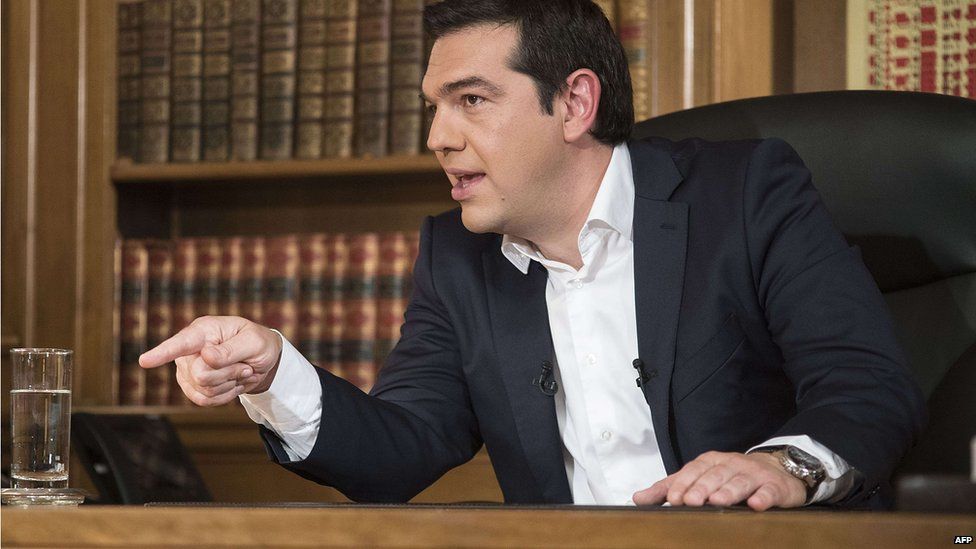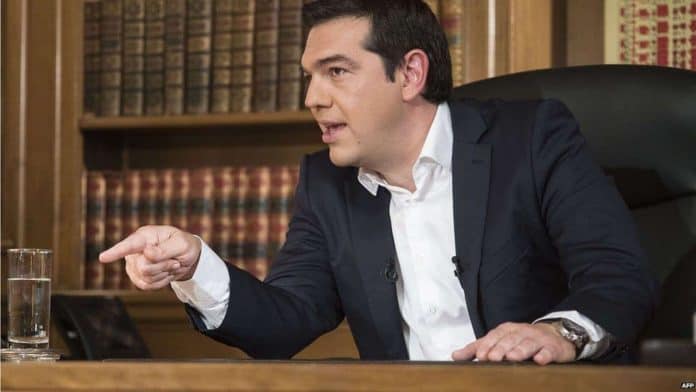-
14 July 2015
- From the section Europe

Greek Prime Minister Alexis Tsipras has says he does not believe in a bailout offered by eurozone leaders – but is willing to implement it.
Mr Tsipras described the deal as “harsh”, but said it was the only way for Greece to remain in the euro.
The conditional plan depends on austerity measures being passed through parliament, where Mr Tsipras faces resistance among his own MPs.
Despite the growing dissent at home he said he has no plans to resign.
Defending the deal, he said: “I assume responsibility for all mistakes I may have made, I assume responsibility for a text I do not believe in, but which I signed to avoid disaster for the country, the collapse of the banks.”
He said he had battled not to cut wages and pensions, arguing the terms agreed were milder than those in previous deals.
Europe’s media stress drama of Greek deal
France buoyed by Brussels agreement
But he also attacked Greece’s creditors, saying “they wanted to take revenge”.
Meanwhile Jeroen Dijsselbloem, who chairs the Eurogroup of finance ministers from euro countries – a key figure in the weekend’s fraught negotiations – said he was “angry” at Mr Tsipras for urging Greek votes to reject a similar package of austerity measures in a referendum.
“You can’t promise things that you can’t bring about,” he told Dutch television.
Mr Tsipras said the referendum had helped secure a better, more long-term deal.
The interview comes on the eve of the vote in Greece’s parliament. The measures, including pensions and VAT reforms, must be passed by Wednesday.
Mr Tsipras may need the help of opposition parties, with a number of Syriza MPs likely to rebel and the junior coalition party, the Independent Greeks, offering only limited support.
Cracks open up – by Mark Lowen, BBC News, Athens
With the deal done, Greece is now racing to meet its first deadline: to pass four pieces of legislation by the end of Wednesday.
But the cracks are emerging in Alexis Tsipras’ coalition.
Away from parliament, Mr Tsipras will also struggle to sell this deal to his own voters, with strike action already called.
But only if he pushes on will the Greek banks get an urgent injection of cash and will the vital bailout funds start flowing once again.


